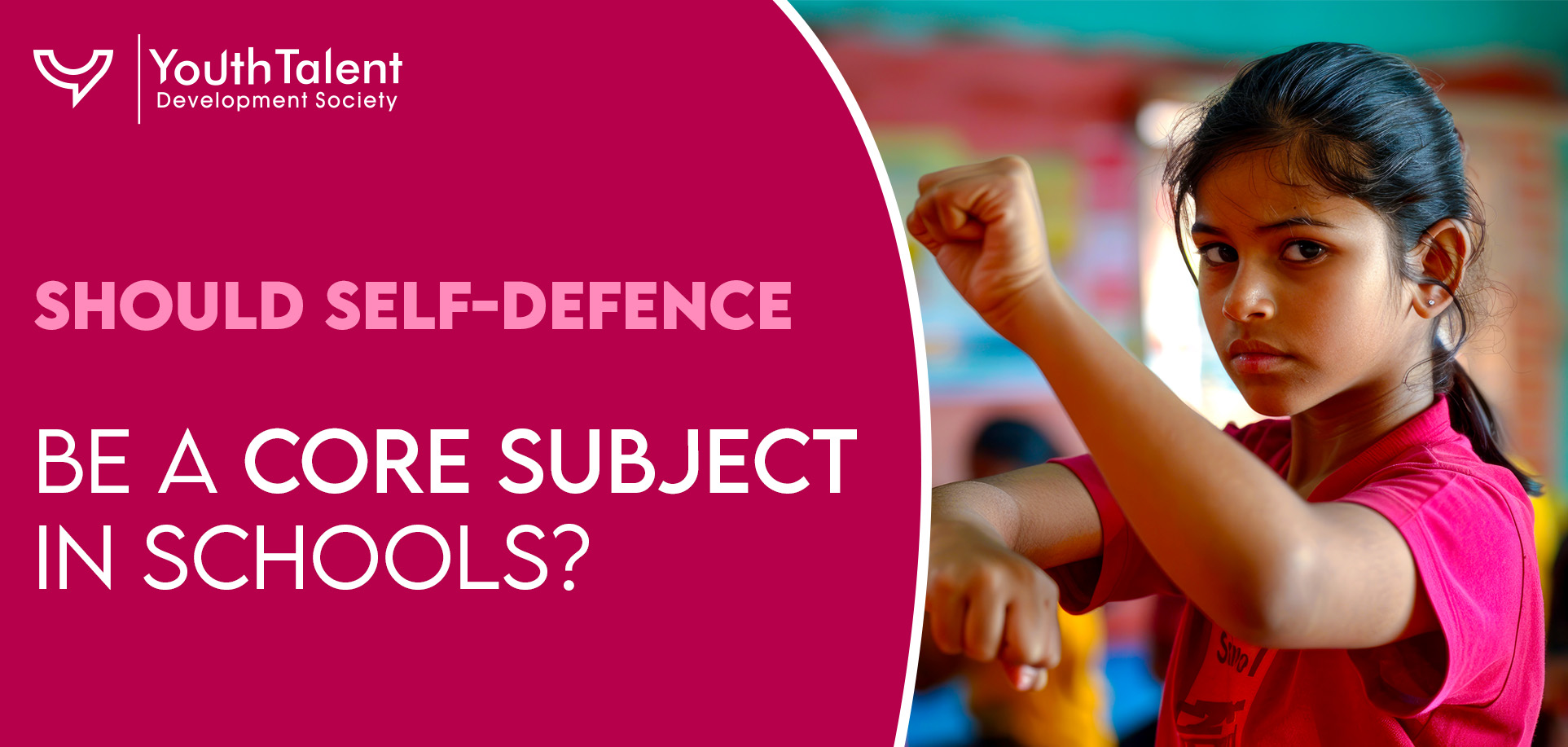
Should Self-Defence Be a Core Subject in Schools?
In an age where personal safety is becoming an important issue, self-defense should be a skill mastered by every individual. The dramatic rise in crime rates has proven that the world can be a very unsafe and unpredictable place for many as well as indicated that more than just vulnerable populations-women and children-are the victims. Certainly, violence, harassment, and assaults have become part of daily news, which gets many people overrun with fear and anxiety. Indeed, with this kind of reality, the discussion on whether or not teaching self-defense should be made a compulsory school subject comes out. The answer to this is an obvious yes. Self-defense education as a core subject in institutions of learning will uphold self-empowerment-one, especially women, to protect themselves and also foster awareness, confidence, and resilience.
The Need for Self-Defence Education
Self-defense education becomes the need as nowadays, most people have either faced or still face some or the other kind of violence or harassment. Crimes against women and children are unfortunately increasing in almost all societies. For example, recent data revealed that a large number of women face harassment in public spaces, while children are often bullied or subjected to various forms of abuse. This creates an environment of fear for many, which can sometimes lead to long-term psychological damage in some and may prevent them from feeling that they are secure in their environments.
Self-defense training is a huge part of this. It involves training individuals to understand how to handle themselves in practical situations wherein they might be endangered. Self-defense teaches awareness, it teaches an understanding of risk, and teaches critical decision-making skills, which are usually very important when faced with pressure conditions from outside sources. Through learning how to respond to threats, some personal risks can be diminished through enhancement of one's safety.
Self-defense education brings a high deal of benefit from the psychological aspect. After receiving such training, most students report increased confidence and esteem. This changes the way they think, making them feel as if they could control or manage their conditions; thus, this could benefit their mental status greatly. The ability to evaluate a situation thoroughly and react, in turn, makes a person stronger to demand making good decisions in his life.
Self-Defence as a Core Subject
Empowering students to learn self-defence courses as part of the school curriculum has a lot of benefits, especially when introduced at a very young age. There are so many invaluable things that early self-defense lessons offer to children and adolescents. For instance, self-defense could be a means of improving the physical and psychological aspects of an individual. Through self-defense training, young learners can excel in areas requiring coordination, agility, and physical strength, which result from participation in self-defensive fitness activities. Apart from such activities are discipline, teamwork, and courtesy towards others, which are qualities that go beyond the boundaries of feeling safe physically.
There are varied ways of integrating self-defence into the school curriculum. One of such ways is having self-defence training within physical education classes. This ensures that self-defence principle exposure will go around all students as part of their physical exercise activity schedule. Self-defence can also be offered as an extracurricular activity so that those interested can devote more time to engaging with it.
Such means, however, will require proper planning for well-versed instruction such that the instructors should be qualified. Not every experienced self-defence trainer is fit enough to provide seamless, quality instruction for students across different age groups and skill levels. Well trained, such instructors will create a safe, supportive environment for students to learn techniques correctly and better develop their confidence. Schools could engage with local self-defence organizations to avail of professional trainings and resource networks.
Additionally, the inclusion of self-defence in school curricula meets wider educational objectives. Apart from that, it is something important that self-defence can accord in order to make respect and safety something worth the culture of a school.
The Role of Organizations Like YTDS
Self-defence organisations such as Youth Training and Development Services (YTDS) truly invest their resources into improving self-defence education, especially for women. With YTDS, empowering people in terms of self-defence study is through confidence-building, resilience training, and skills. Internalising empowerment is near physical training; rather, the breadth extends to communities or collectivities.
#HitWhereItHurts is among the courses offered by YTDS, basically an anti-abuse course for women using various real-world scenarios, mostly problems faced by women, against which they can create defensive mechanisms. Participants learn to escape from potential threats and develop an awareness of surroundings, enabling them to navigate public spaces with confidence. The impact of the #HitWhereItHurts program has already set in, with many women reporting improved confidence and a sense of security in their daily lives.
Both YTDS and schools have to come together to build holistic programmes on self-defence. That, together with schools, can facilitate YTDS to create unique sessions for its training curriculum tailored for students on relevant contemporary issues about how the young people have to learn to keep themselves safe and sound. These types of collaboration will also supplement the curriculum with activities that will bring communities closer to safety and self-defence issues.
The collaboration should not stop there, but also go beyond to cement and facilitate workshops and seminars within the institutions to educate learners through these aspects of safety, consent mechanics, as well as bystander intervention. A comprehensive intervention
The Broader Implications of Self-Defence Education
Self-defense education in schools will have far-reaching implications for society as a whole. Learning self-defense makes a person an advocate for self and others as well; hence, it encourages a culture of solidarity and support. Thus, with the abilities to defend themselves, students might be more inclined to speak up against bullying or harassment displayed in their environments. Then, it develops a chain reaction that makes individuals feel responsible for improving their communities.
To the greatest extent, education on self-defense will reduce the prevention of violence geared towards attack. When students are able to identify and de-escalate a dangerous situation, schools will actually not just protect to harm reduction in violence, but it will also define initiates. Safety and respect boundaries and personal safety teach students that develop mindset and attitude which will lead to an experiential shift in value, which is positive towards assent and consensual respect.
In turn, self-defense education is part of the salve for more extensive systemic issues of violence. Teaching young people about power dynamics and teaching consent and standing against injustice within an institution could develop a generation that is more aware and proactive in making the world a safer place. This holistic mindset can be pushed through to students such that they speak of changing the deep-seated causes of violence and even harassment as a whole.
Conclusion
The significance of learning about self-defense in the schools cannot ever be underscored more than this. So far, criminals have, without doubt, intensified their nefarious acts, prompting a need to empower people to learn how to guard themselves. Introducing self-defense as part of the core subjects taught in schools will raise a generation of people being quite confident and capable of not only knowing but also defending their rights.
Let's go to the next step and galvanize support for such initiatives as YTDS's #HitWhereItHurts program, which works tirelessly to upgrade women with self-defense skills. Advocacy for self-defense education isn't just about the individual's safety; it is also about creating a safer future for everyone. Together we could mould an environment in which it is possible to stand up against violence and harassment, where communities prioritize safety and respect for everyone.
By including self-defense in school curricula and working with bodies committed to this cause, meaningful strides can be made toward a society in which all individuals, irrespective of gender or background, can advocate for what is rightfully theirs and possess the confidence and skills to protect themselves. The moment is now. Let's take action to mainstream self-defense education for a better and safer tomorrow.


